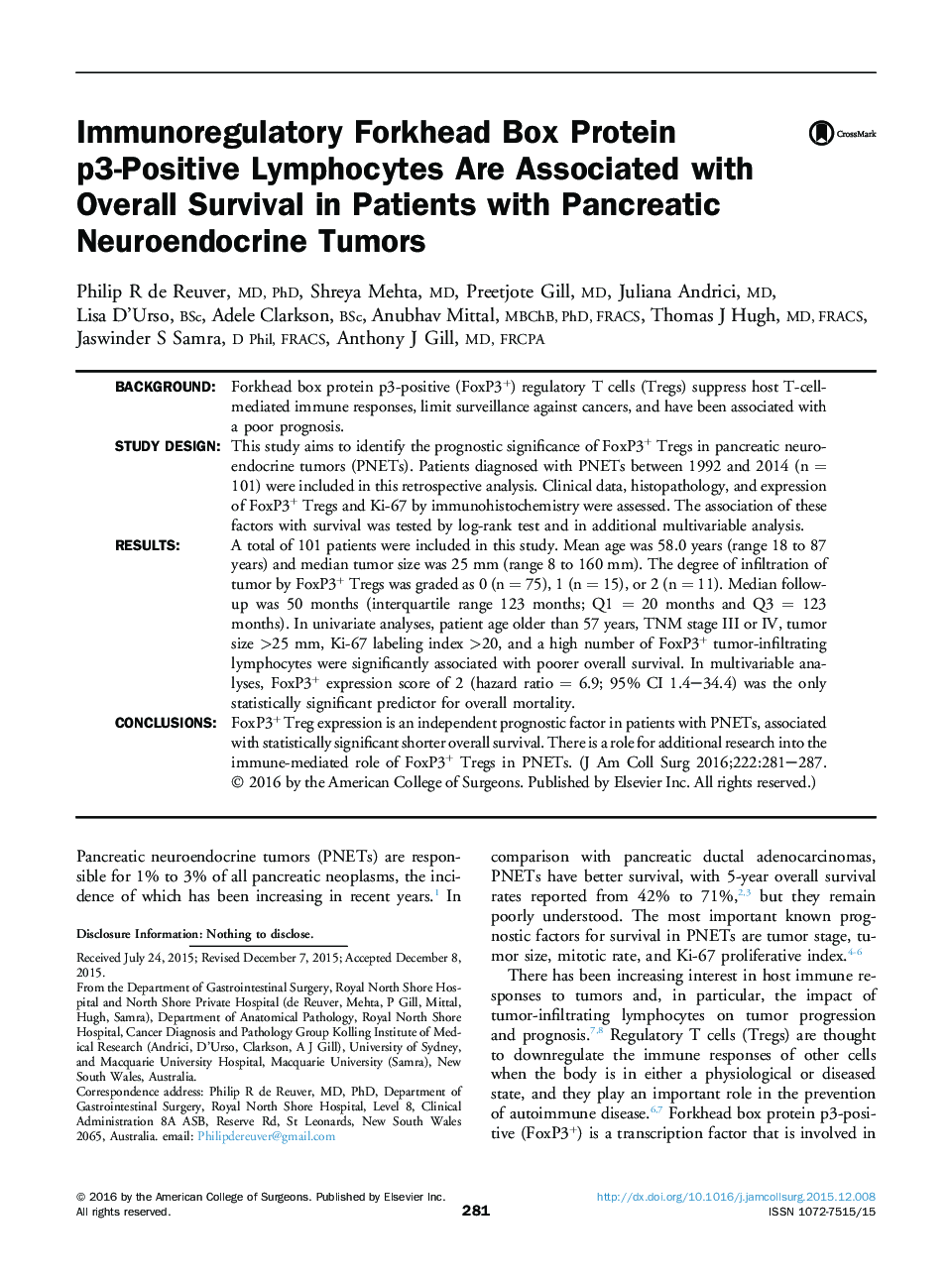| Article ID | Journal | Published Year | Pages | File Type |
|---|---|---|---|---|
| 4290621 | Journal of the American College of Surgeons | 2016 | 7 Pages |
BackgroundForkhead box protein p3-positive (FoxP3+) regulatory T cells (Tregs) suppress host T-cell-mediated immune responses, limit surveillance against cancers, and have been associated with a poor prognosis.Study DesignThis study aims to identify the prognostic significance of FoxP3+ Tregs in pancreatic neuroendocrine tumors (PNETs). Patients diagnosed with PNETs between 1992 and 2014 (n = 101) were included in this retrospective analysis. Clinical data, histopathology, and expression of FoxP3+ Tregs and Ki-67 by immunohistochemistry were assessed. The association of these factors with survival was tested by log-rank test and in additional multivariable analysis.ResultsA total of 101 patients were included in this study. Mean age was 58.0 years (range 18 to 87 years) and median tumor size was 25 mm (range 8 to 160 mm). The degree of infiltration of tumor by FoxP3+ Tregs was graded as 0 (n = 75), 1 (n = 15), or 2 (n = 11). Median follow-up was 50 months (interquartile range 123 months; Q1 = 20 months and Q3 = 123 months). In univariate analyses, patient age older than 57 years, TNM stage III or IV, tumor size >25 mm, Ki-67 labeling index >20, and a high number of FoxP3+ tumor-infiltrating lymphocytes were significantly associated with poorer overall survival. In multivariable analyses, FoxP3+ expression score of 2 (hazard ratio = 6.9; 95% CI 1.4–34.4) was the only statistically significant predictor for overall mortality.ConclusionsFoxP3+ Treg expression is an independent prognostic factor in patients with PNETs, associated with statistically significant shorter overall survival. There is a role for additional research into the immune-mediated role of FoxP3+ Tregs in PNETs.
